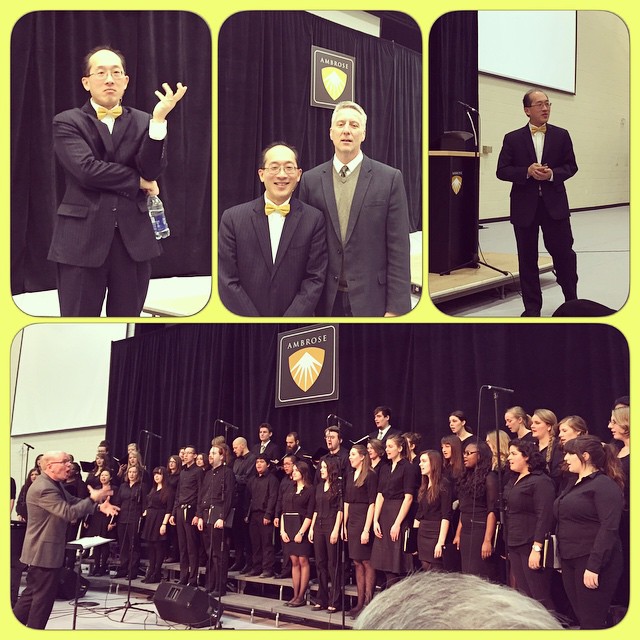The Coming of Pietistic-Pentecostalism: Summary and Reflection on Amos Yong’s 2015 Downey Lectures

On February 11th and 12th 2015, Amos Yong delivered a two-part series of lectures at Ambrose University for the annual Murray W. Downey Lectureship. Ambrose University is a Christian institution of higher education in Calgary, Alberta, Canada, composed of a denominationally diverse community seeking to represent Christ in their respective fields. Yong is currently Professor of Theology and Mission and Director for Missiological Research at Fuller Theological Seminary. He is a prolific author who has written, edited, and contributed to scores of publications. At this lectureship, Yong explored the impact of Pentecostalism on Christianity in his lectures titled, “The Coming Global Christianity: Pietistic-Pentecostal Challenges and Opportunities.”

Murray W. Downey was a founding member of the faculty of the Canadian Bible College in 1941 and taught there for 31 years. An Academic Dean for six years, he was also Director of Christian Service for 30 years. In 1982, the Canadian Theological Seminary along with the Canadian Bible College established the Murray W. Downey Chair of Evangelism. The Downey Endowment and Scholarship Fund and Lectureship Series honours Mr. Downey’s service, passion, and commitment, and assists future M.Div. students.
From the Ambrose University page introducing the 2015 Downey Lectures.
In his first lecture, Yong introduced the issues at hand by defining his terms and then presented the challenges facing Pietistic-Pentecostalism. This stream of Christianity is “coming” in the sense that it is a present reality that has not yet arrived in its fullness, as seen in its continual growth. It is “global” in that it is affecting communities all over the world. Yong noted that some prefer the term “World Christianity” rather than “Global Christianity” because the former emphasizes not only the expanse of Christianity around the world (as the latter does) but also the diversity seen among the different Christianities. Pietistic-Pentecostalism is one of these expressions. While Pietism and Pentecostalism are not identical, they are related in many ways. In fact, a Pietistic form of Pentecostalism has emerged. The merging of strands from these two traditions into one unique expression of Christianity can be traced to the Azusa Street Revival in the twentieth century, where many of those involved in this Pentecostal movement came from Pietistic backgrounds. Thus, while not the same thing, these two traditions are organically interrelated and may be regarded as spiritual and historical cousins, perhaps even siblings.
After defining his terms, Yong identified two characteristics of Pietistic-Pentecostalism: first, its place within evangelicalism (in that it is committed to a born again experience, Christ-centered spirituality, a focus on the cross, and a commitment to evangelism a la David Bebbington’s definition) and, second, its emphasis on orthopathos (right feeling) and orthopraxis (right behavior). While it does not neglect orthodoxy (right thinking), it defines it differently—primarily in its necessary relation to both orthopathos and orthpraxis—rather than primarily in its relation to creeds and confessions. In order to illustrate this understanding of orthodoxy, orthopraxis, and orthopathos, Yong explained what a conversation between Pietistic-Pentecostals looks like. He said it is only after the two parties agree that they “love Jesus” that they would get into a discussion of other theological issues. None of the emerging theological issues, however, would ever be seen as being as important as the already established fact that they both love Jesus. While “loving Jesus” may need to be defined, this defining must not take precedence over the fact that love must be displayed in one’s actions. In fact, Yong proposed, this is exactly what theology is—a reflection on how one has experienced the risen Christ in the power of the Holy Spirit. It is not, primarily, abstract hypothesizing.
Category: In Depth, Spring 2015


